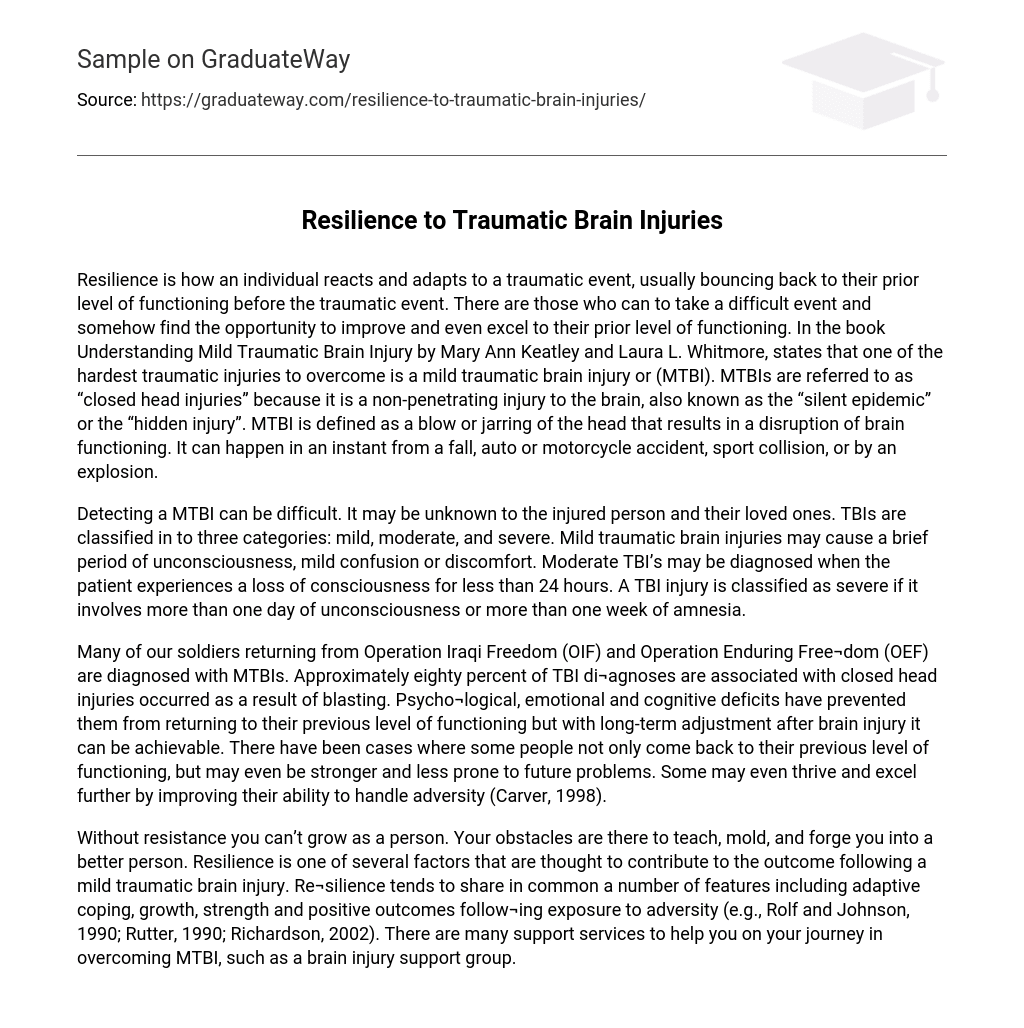Resilience is how an individual reacts and adapts to a traumatic event, usually bouncing back to their prior level of functioning before the traumatic event. There are those who can to take a difficult event and somehow find the opportunity to improve and even excel to their prior level of functioning. In the book Understanding Mild Traumatic Brain Injury by Mary Ann Keatley and Laura L. Whitmore, states that one of the hardest traumatic injuries to overcome is a mild traumatic brain injury or (MTBI). MTBIs are referred to as “closed head injuries” because it is a non-penetrating injury to the brain, also known as the “silent epidemic” or the “hidden injury”. MTBI is defined as a blow or jarring of the head that results in a disruption of brain functioning. It can happen in an instant from a fall, auto or motorcycle accident, sport collision, or by an explosion.
Detecting a MTBI can be difficult. It may be unknown to the injured person and their loved ones. TBIs are classified in to three categories: mild, moderate, and severe. Mild traumatic brain injuries may cause a brief period of unconsciousness, mild confusion or discomfort. Moderate TBI’s may be diagnosed when the patient experiences a loss of consciousness for less than 24 hours. A TBI injury is classified as severe if it involves more than one day of unconsciousness or more than one week of amnesia.
Many of our soldiers returning from Operation Iraqi Freedom (OIF) and Operation Enduring Free¬dom (OEF) are diagnosed with MTBIs. Approximately eighty percent of TBI di¬agnoses are associated with closed head injuries occurred as a result of blasting. Psycho¬logical, emotional and cognitive deficits have prevented them from returning to their previous level of functioning but with long-term adjustment after brain injury it can be achievable. There have been cases where some people not only come back to their previous level of functioning, but may even be stronger and less prone to future problems. Some may even thrive and excel further by improving their ability to handle adversity (Carver, 1998).
Without resistance you can’t grow as a person. Your obstacles are there to teach, mold, and forge you into a better person. Resilience is one of several factors that are thought to contribute to the outcome following a mild traumatic brain injury. Re¬silience tends to share in common a number of features including adaptive coping, growth, strength and positive outcomes follow¬ing exposure to adversity (e.g., Rolf and Johnson, 1990; Rutter, 1990; Richardson, 2002). There are many support services to help you on your journey in overcoming MTBI, such as a brain injury support group.





